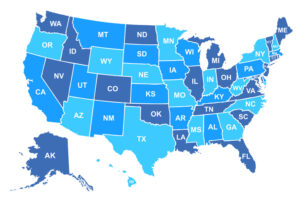After H.R.1, Millions More Could Lose Marketplace Coverage

Marketplace enrollees are facing threats to their health coverage and healthcare affordability as a result of the recently enacted budget reconciliation bill. CHIR expert Karen Davenport discusses the impending expiration of enhanced premium tax credits, which would drastically compound the coverage losses of H.R. 1 for American consumers.








